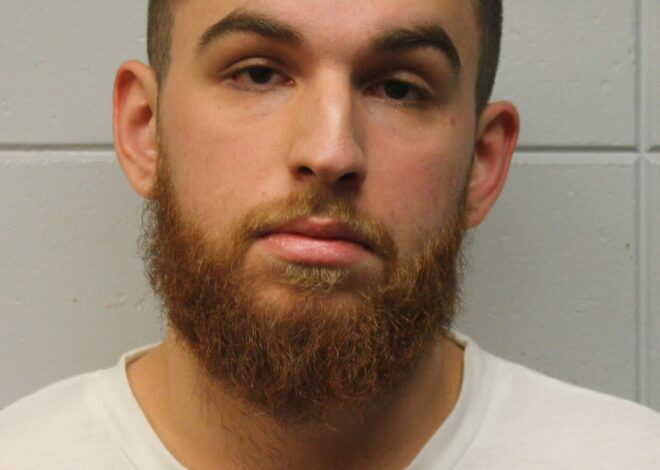Haiti Fixes Adoption System, But Some Fear Too Few Adopted
PORT-AU-PRINCE, Haiti (AP) — Anne-Marie Saintou walks with a megaphone along the dusty lanes of a Haitian fishing village, imploring people not to make the same mistake she did.
“Ladies, say ‘NO!’ she shouts. “We will not give away our children anymore.”
Saintou is part of a campaign by a nonprofit organization to warn poor Haitians about promoters and recruiters for orphanages who roam the countryside offering money, or false promises, to desperate parents struggling to raise children in the Western Hemisphere’s most impoverished country.
She speaks from bitter experience.
The 42-year-old year old, walking the unpaved streets in a long skirt and blouse with two companions, said she placed her 3-year-old daughter, Mikerline, up for adoption 12 years go with the understanding that the child would get an education and come back. She received photos and letter but lost contact after three years. “I never heard from her again.”
Accounts like Saintou’s are not uncommon in Haiti, where regulation of any kind is spotty, education minimal and circumstances often desperate enough to leave people at the mercy of the unscrupulous. But that appears to be changing, at least when it comes to international adoption in a country that has become a favored choice for Americans seeking a child.
A complete overhaul of the child-welfare system is drawing wide praise for addressing serious flaws, including some exposed in the chaotic aftermath of the devastating January 2010 earthquake.
The Haitian government, through its Institute of Social Well-Being and Research, has prohibited private adoptions, restricted the number of foreign adoption agencies accredited to work in the country and set a quota that limits the number of children who can be adopted internationally per year. It also imposed regulations aimed at addressing longstanding complaints that Haitian parents were too often pressured or manipulated into giving up children for adoption without fully understanding the ramifications.
Experts in child welfare say the changes, which went into full effect as of April 1, 2014, when Haiti became a signatory to the Hague Convention on International Adoption, have gone a long way to cleaning up a murky and corruption-prone process.
Since the earthquake, which killed more than 300,000 people according to the official estimate, the government has worked with UNICEF to rewrite the adoption code and bolter social services in a country where 60 percent of the population gets by on less than $2 a day. The government has also closed about 40 substandard orphanages and added regulations to limit opportunities for corruption within the adoption system.
“It has been too easy to adopt children internationally here and in some countries of Africa,” said Kristine Peduto, chief of the child protection unit in Haiti for UNICEF. “People were coming as if they were coming to the market.”
The new system requires counseling for families considering giving children up for international adoption that explains they may never see their child again, and a cooling-off period to allow for a change of mind. It requires social workers to try to find a relative or even a neighbor who could step in to help. “The reforms are intended to keep children with their families because that is the best place for them,” said Arielle Jeanty Villedrouin, director-general of the country’s social services agency.
Some proponents of international adoption, however, feel the pendulum may have swung too far in the opposite direction. The social services agency approved 653 adoptions last year, about half the number approved annually before the earthquake, and a small fraction of the estimated 50,000 children in Haitian orphanages, the vast majority of whom have at least one living parent.
The quota “does not even come close,” to being sufficient for the many children who could be adopted but instead face a life in an orphanage, often in grim conditions, said Diana Boni, Haiti program coordinator for All Blessings International, one of 18 U.S. adoption agencies accredited by the government to work in the country under the new regulations.
“Thousands of children growing up in institutions with no hope of a normal, healthy adulthood is a very unhappy prospect,” said Boni, who lives in South Dakota and has adopted five children of her own in Haiti.
Prospective parents, meanwhile, wait back in the U.S., Europe or Canada, the places that account for most adoptions from Haiti, and work through the more regimented adoption process that typically takes about three years.
“It takes a lot of patience, a lot of prayer,” said Jill Sperling, a resident of Orland Park, Illinois, who began the adoption process in late 2013. “I definitely feel that’s the plan God has for me, to be the mom for a little boy from Haiti.”
Sperling plans to arrange her adoption through Bethany Christian Services, a major U.S. adoption agency which believes it could place many more children in loving U.S. homes than currently allowed under Haiti’s new quota system.
“Things have slowed to a crawl,” said Kristi Gleason, Bethany’s international programs director, who says the Haitian social services agency lacks the staff and budget to fully carry out its goals.
The criticism is muted in part because many advocates welcome the reforms overall, particularly efforts to make sure families understand the full implications of giving up their parental rights.
There have long been accounts in Haiti of people putting their children in orphanages for what they thought was a temporary stay, only to find them gone when they returned for them. Susan Krabacher, a U.S. citizen who founded Mercy & Sharing, a Haitian nonprofit that runs residential centers and schools for disabled and abandoned children, said she the stories often enough that she launched the public awareness campaign with volunteers like Saintou.
The volunteers warn people to be wary of promoters who have been known to offer a small amount of money, typically portrayed as transportation money to cover a few visits to the orphanage for the impoverished parents, in exchange for a signature on a document abdicating custody. Sometimes parents are told the child will send them money or help them get to the United States or Europe or come back to Haiti after a few years. Saintou says she was led to believe her daughter would come home. “I didn’t know I was giving up my rights,” she says.
Mercy & Sharing is working with the government and mobile phone company Digicel to produce a national campaign. For now, though, it’s done on foot or with a speaker from a truck. The teams have been going out each day in three areas, two of which are in the capital, where the organization runs residential centers. Saintou was accompanied by two other women, Rose Marie Hilaire and Phadia Fils-Aime, down a dirt road lined with cactus and scrub toward the village of Luly, where people live in small concrete shacks and get by fishing from small boats in the Caribbean Sea.
As she and the others made their way past street stalls selling water and mobile phone minutes, villagers listened curiously and a few stopped and chatted with them, making note of the phone numbers they offered for people in need of medical care or some other form of help. Thirty-year-old Zina Bazile paused while sweeping the entrance to her small house and nodded in agreement at the message. “You can’t give away your kids just so they can have a better life,” she said.
Saintou said that at the time she and her husband decided to give their daughter away, they were struggling to raise five other children, the oldest of whom is now 23. Mirkeline, she says, was adopted by a family in France and the agency representative told her that they would stay in contact. She received three sets of photos and a letter but all communication stopped abruptly after three years. She went back for answers but got the brush off. “She told me she has no information.”
___
Fox reported from Haiti; Crary from New York


